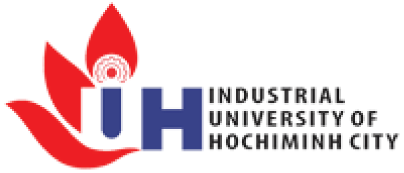Industrial University of Ho Chi Minh City Joins the Green Edu Seeds Project under the Erasmus Foundation 19-03-2025
Erasmus+ is a key EU program that supports projects, partnerships, and events in education, training, youth, and sports. It fosters cooperation among 33 European countries and other regions worldwide. The Industrial University of Ho Chi Minh City (IUH) is honored to be one of 12 universities from Austria, Germany, Italy, Thailand, and Vietnam participating in this significant Erasmus+ project.
.jpg)
At the project launch, Professor Mireille van Poppel, Vice-Rector of the University of Graz, warmly welcomed partners from Vietnam, Thailand, Austria, Italy, and Germany. Representing IUH were Assoc. Prof. Dr. Dam Sao Mai, Vice Rector, and Mr. Tran Thanh Hai, Deputy Head of the Materials Planning Department. (Photo: University of Graz/Schweiger)
Over the years, the European Union (EU) has closely collaborated with Vietnam in various fields, particularly higher education. Erasmus and Erasmus+ have played crucial roles in strengthening institutional capacity, improving educational quality, promoting international exchange, and sharing research experience between European and Vietnamese universities. These efforts have also fostered cooperation and cultural understanding.
As part of the cooperation agreement between IUH and the University of Graz (Austria) signed on December 14, 2024, the Erasmus+ project "Promoting Green Skills in Vietnam and Thailand" (Green Edu Seeds) focuses on developing strategic educational platforms for academia and business. The project emphasizes areas with high potential for sustainable impact.
The "Green-Edu-Seeds" project is part of the ERASMUS+ Capacity Building in Higher Education program, aiming to develop training programs that accelerate the transition to a sustainable economy and society. The Wegener Center for Climate Change and Global Affairs at the University of Graz — host of the kick-off event — plays a key role in providing expertise for this initiative.
Vietnam and Thailand, known as top tourist destinations, are also among the regions with the highest carbon emissions globally, according to the Global Carbon Atlas report. To promote sustainable development in rice cultivation, fruit farming, and tourism, the University of Graz launched this innovative project with funding from the European Union (EU).
On March 4, 2025, Professor Dagmar Henner, Project Manager, and Professor Mireille van Poppel, Vice President for International Relations and Innovation at the University of Graz, presided over the launch ceremony. They welcomed representatives from 12 participating organizations, including universities and technology enterprises from Vietnam, Thailand, Austria, Italy, and Germany. Speaking at the event, Professor Henner emphasized, "We have agreed on important decisions to guide the next phases of the project and ensure effective cooperation between the parties."
The project is expected to implement 45 modules over the next three years. The first courses will begin this year, conducted either online or face-to-face at four universities in Vietnam and Thailand, in collaboration with business sector partners. These programs target students, start-ups, and policymakers.
"Economic development towards regeneration and ecosystem protection can go hand in hand," Professor Henner stated. She highlighted the sector’s vast potential: "Sustainable agriculture, food production, and ecotourism are increasingly gaining attention. Moreover, over 16 million new jobs will be created by 2030."
IUH actively participates in the Green-Edu-Seeds project as a member, contributing to all eight work packages (WP) of the project as follows:
WP1: Effective Project Setup and Management
WP2: Green Project Transfer and Implementation
WP3: Developing and Implementing Demand-Oriented Courses
WP4: Defining Goals and Missions for Non-Academic Education
WP5: Developing and Adapting a Digital Training System for the Project
WP6: Promoting Awareness and Supporting Startups in Green Technology, Health, and Agriculture
WP7: Quality Management and Project Performance Evaluation
WP8: Dissemination and Impact
This work package aims to ensure widespread recognition of the project, maximize its social and professional impact, and systematically disseminate information and results in an effective and sustainable way.








